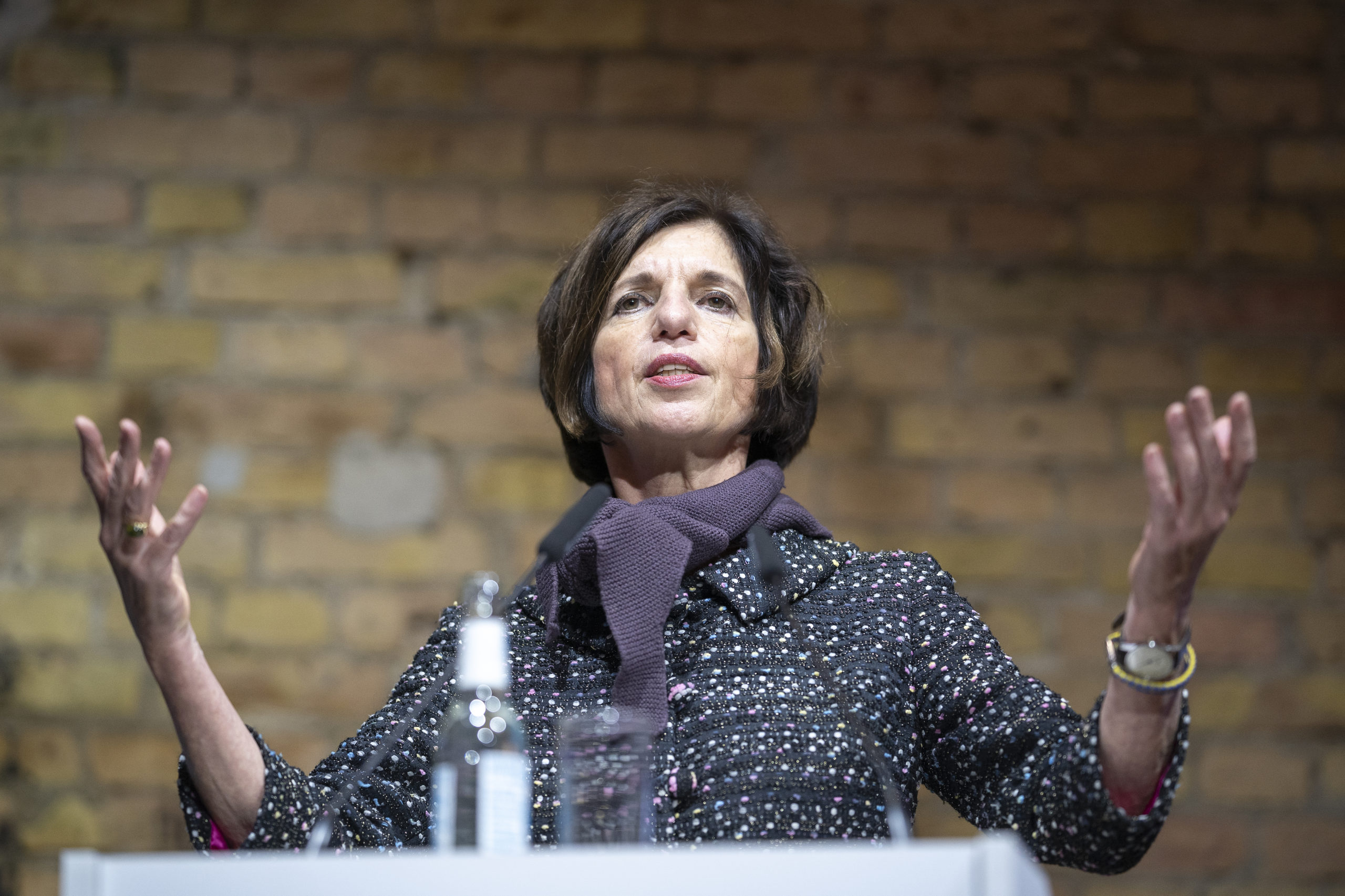NEW PARADIGM
Good Work in a Transformative World
Where does Germany stand in the run towards “good jobs”? And what else needs to be done? With Jutta Allmendinger, Sebastian Dullien, Simon Jäger and Miriam Rehm
BY
XHULIA LIKAJPUBLISHED
18. OCTOBER 2022READING TIME
4 MIN
How do we recreate “Good Jobs” in Germany? Certainly not along national borders said Jutta Allmendinger (WZB, Berlin) in her keynote at our XI New Paradigm Workshop: in fact, we need to address the question at a European or even global level. And before embarking into the how, we should define what a good job today is. A good job is a moving target, whose defining criteria change over time. An example of this is the length of the working time: some years ago a job offering a forty-hours working week would be considered a good job, not this is no longer the case. Individual preferences as to what constitutes a good job are changing and this should be taken into account when we imagine the future of work.
"New jobs cannot be fostered nationally, we need to think regionally and globally, tackle gender and age discrimination and envision the workplace as a melting pot"
The following points should be kept in mind when talking about “Good Jobs”:
- The new idea of job is defined by unpredictability: if in the past education and training would lead to a stable and static long-life career, nowadays young individuals have to take into account that their career path will very likely involve abrupt changes of path and re-training. The German system of vocational training seems to not have adapted too well to the changing times, and it turns out to be too inflexible. In order to reintroduce predictability of job paths for the working population we should give the possibility for second or additional trainings and educational programs which are subsidized.
- Union coverage has declined due also to digitalization and a growing platform economy that Unions have not been able to take under their umbrella. However, this loss must not be a given and Unions must adapt the new shape of the labour market.
- We are seeing an increase in the working poor and the recent increase in minimum wage will not help reverse the trend given the current surge in inflation levels. Further actions are needed to guarantee a fair wage.
- While income inequality has not increased considerably, wealth inequality has. So thinking about good jobs also means to think about ways to reduce wealth inequality.
- We consider work as a melting pot of people from different social strata and qualification levels – physical spaces like offices serve as a place of interaction, but this is getting lost due to digitalization, the spread of platform economies, home working etc. To recreate good jobs, it means also to bring back in the social factor and to thoughtfully create the urban space as one of socialization (e.g., introduce co-working spaces).
- Equal and fair work between genders is still far from being reached and we cannot aim for good jobs without addressing this point. We should close the gender pay gap and not through a race to the bottom of wages.
- Age discrimination when it comes to hiring is still very present and cannot be part of a new way of thinking about jobs.
Sebastian Dullien (IMK Düsseldorf) adds the economic dimension to the question “why do we need good jobs?”. The economic rationale – he says – is that in face of the three big challenges that Germany is facing for the next decade or so, namely demography, digitalization and decarbonization, moving towards good jobs it means also a higher GDP, lower unemployment and lower public debt. Moving towards good work could solve for instance the shortage of qualified workforce in those sectors that are currently not well paid or valued (like the health and education sector). Also, having good working conditions means that some people will be willing to retire later and thus be part of the active workforce for a longer time, thus removing some of the burden from the pension system.
The recent increase in the minimum wage is certainly a positive sign of the intention to help create good jobs, but it is also sadly true that the wage increases have been mostly wiped out by inflation. This means that there is a need to re-discuss what next steps would be necessary to move towards good jobs now that it is clear that this increase will not have a sufficient impact.
Simon Jäger (IZA Bonn) stresses how crucial it is that we direct resources towards labour market institutions that guide the direction of technological change towards the creation of good jobs instead of supporting those that create an ever larger low-wage sector.
We also urgently need to have an honest conversation on the benefits and downsides of short-term work (the so called Kurzarbeit) – says the director of IZA – which will likely play again a big role the coming winter. It is true that on the short term it is a good tool for rescuing employment relationships, but we should also ask ourselves whether it is a measure that in the long term hinders structural change.
Miriam Rehm (University of Duisburg-Essen) brings back in the problem of labour segmentation in Germany. This segmentation that was sharpened by digitalization and concentration and that the climate emergency risks exacerbating even further. Labour market institutions will have thus a big role reorganizing the industrial structure in view of the transition towards decarbonization. To go towards good jobs we would certainly need a whole new institutional setup encompassing many aspects, says the economis, but one big measure that would bring us closer to the goal is a reduction in working hours and a redistribution of working time and wage in a more equitable way between men and women.
